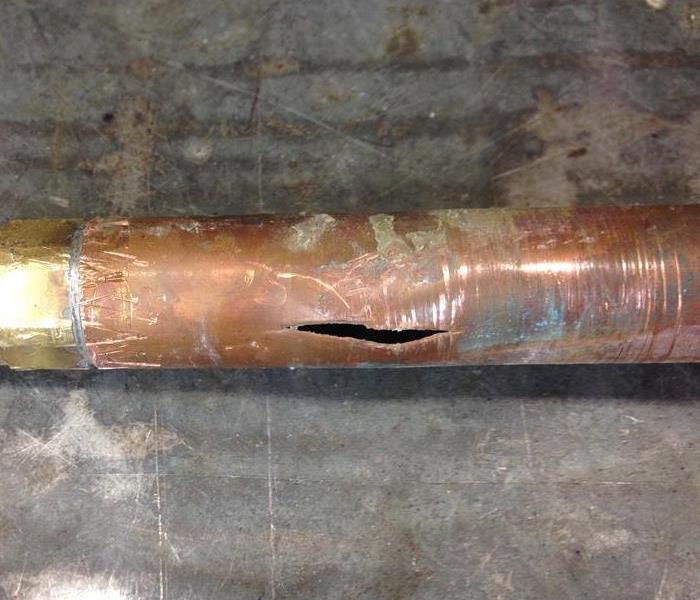Preventing Frozen Pipes
12/11/2018 (Permalink)
With winter in full swing it is ideal to take care of the pipes on the inside of your house and outside of your house. Here are some way to prevent pipes from freezing.
Preventative Measures for Outside
A frozen garden hose can cause more damage than a busted hose; it can actually burst an interior pipe. When the water in the hose freezes, it expands, increasing pressure throughout the whole plumbing system. As part of your regular seasonal maintenance, garden hoses should be disconnected, drained, and stored before the first hard freeze.
If you don’t have frost-proof spigots, close the interior shut-off valve leading to that faucet, open and drain the spigot, and install a faucet insulator. They cost only a couple bucks and are worth every penny. Don’t forget, outdoor kitchens need winterizing, too, to prevent damage.
Exposed Interior Plumbing
Exposed pipes in the basement are rarely in danger of freezing because they are in a heated portion of the home. But plumbing pipes in an unheated area, such as an attic, crawl space, and garage, are at risk of freezing.
Under-Insulated Walls
If pipes traveling in exterior walls have frozen in the past (tell-tale signs include water damage, mold, and moisture build-up), it’s probably because of inadequate or improperly installed insulation. It might well be worth the couple hundred dollars it costs to open up the wall and beef up the insulation.
SERVPRO Burlington/Mt. Holly is here to help advise people what to do during the winter to prevent pipes from bursting.






 24/7 Emergency Service
24/7 Emergency Service
